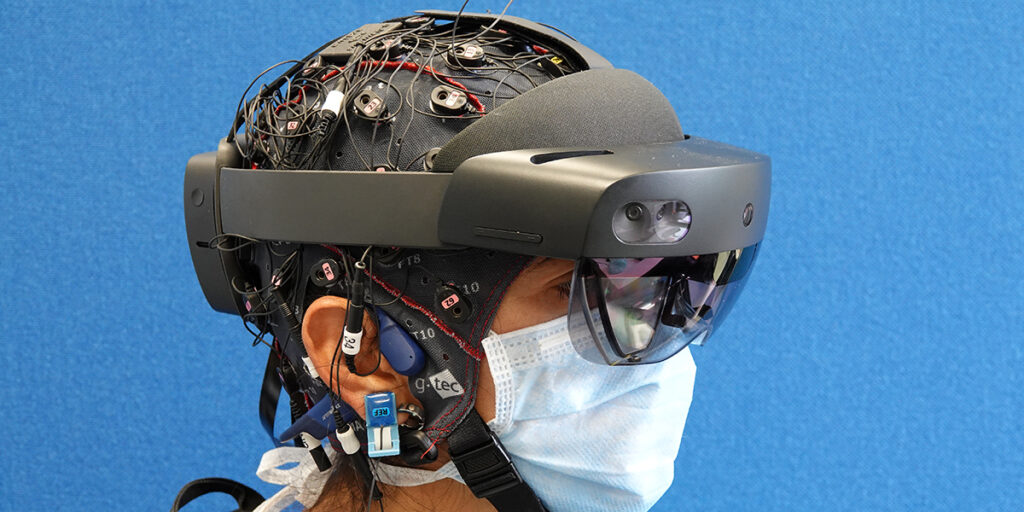
The Digital Neurotechnological Center employs a range of advanced methods to conduct research, develop new technologies, and contribute to the field of neuroscience. These methods are interdisciplinary, combining techniques from neuroscience, engineering, computer science, and clinical practice to address complex challenges.
Computational Modeling and Simulation:
- Neural Network Models: These models simulate the structure and function of neural circuits, helping researchers understand how the brain processes information and makes decisions.
- Brain-Computer Interfaces (BCIs): Development and testing of BCIs that allow direct communication between the brain and external devices, often using machine learning algorithms to interpret neural signals.
- Cognitive and Behavioral Simulations: Using computational models to simulate cognitive processes and predict behavioral outcomes based on neural activity.
Machine Learning and Artificial Intelligence:
- Deep Learning: Applying deep neural networks to analyze large datasets, such as neuroimaging data or genetic information, to uncover patterns and make predictions about neurological conditions.
- Natural Language Processing (NLP): Used for analyzing and interpreting communication disorders or developing AI-driven tools for cognitive rehabilitation.
- Predictive Analytics: Employing machine learning algorithms to predict the onset or progression of neurological diseases based on clinical and biological data.
Data Acquisition and Analysis:
- High-Throughput Data Collection: Techniques such as large-scale EEG recordings or genomic sequencing that generate vast amounts of data for analysis.
- Big Data Analytics: Using advanced algorithms and computational power to analyze large datasets, identifying trends, correlations, and potential causal relationships in neurological research.
- Statistical Methods: Applying rigorous statistical analysis to validate findings, ensuring that results are robust, reliable, and generalizable.
Interdisciplinary Methodologies:
- Integrated Research Approaches: Combining methodologies from different disciplines, such as neuroscience, robotics, and psychology, to address complex research questions in a holistic manner.
- Cross-Disciplinary Collaboration: Facilitating collaboration between different research fields to develop new methods that leverage the strengths of each discipline.
